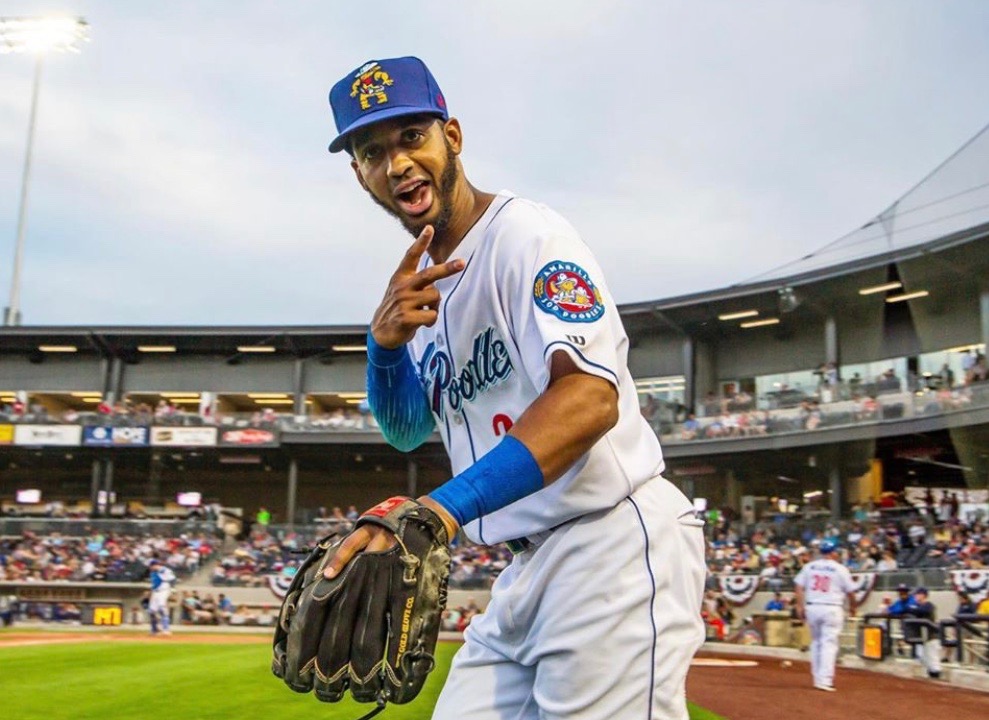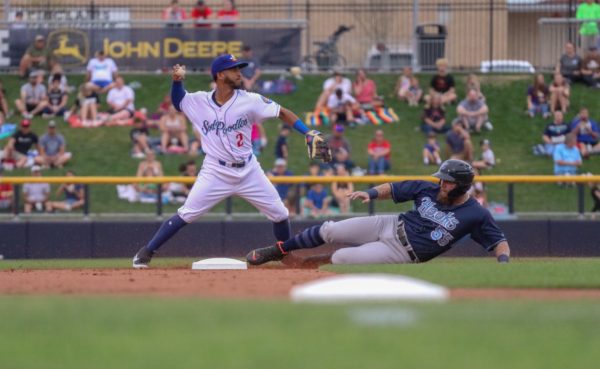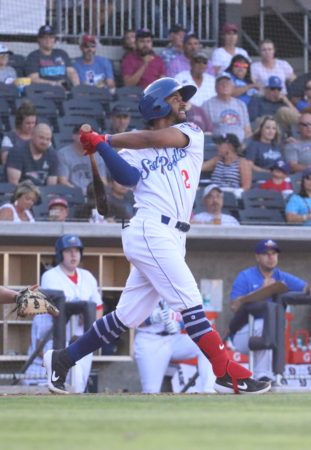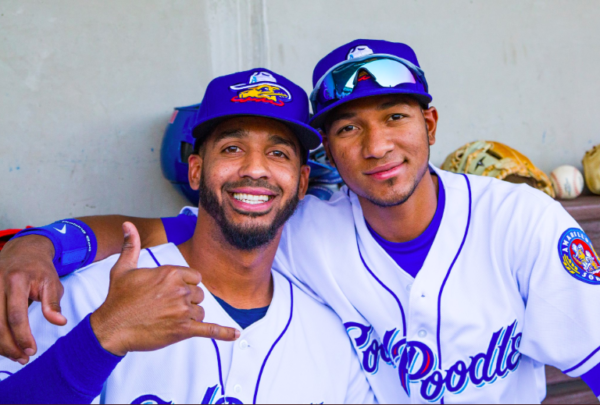Q & A with Sod Poodles second baseman Ivan Castillo

John Moore/ Amarillo Sod Poodles

Ivan Castillo is quickly establishing himself as an Amarillo Sod Poodle to keep an eye on for the rest of the 2019 season.
The Texas League current leader in batting average recently sat down to talk to East Village Times about growing up, what he needs to work on and more.
Here is how the conversation went with Castillo who is quite fluent in English.
How was it having Trevor Hoffman in the dugout?
IC: It was really awesome to have guys like that in the dugout. When guys like that come in they bring a burst of energy to us and what can I say? That’s a priceless moment right there.
You grew up in the Dominican Republic. What made you fall in love with baseball at home?
IC: I would say in the Dominican Republic baseball is the main sport over there. My brother plays baseball too. He’s eight years older than me, so I fell in love with the game watching him play. He used to play professional baseball like I am doing, and it kind of went from there. I would watch him play, and he would take me to the field when I was a little kid. It’s a big part of where I am right now
When you’re an international prospect, how does that process work?

IC: We talk to scouts, but from where I am from there is not a lot of scouts in that area of Monte Cristi because it’s so far North. So there isn’t a lot of opportunities there so what we would do is we would go to the city of Santiago or Santa Domingo, and we do tryouts and other things.
You play for a manager that has over 1200 games under his belt. What has it been like playing for coach Wellman?
IC: It’s a lot of fun. He lets you play and be yourself. That’s the kind of thing you want as a player; you want a manager like him that lets you just go out there and have fun.
Were you always a switch hitter or was that something recent before professional baseball?
IC: I’ve been switch-hitting since I was nine years old, so it’s been a long time now. It’s not the same facing a good lefty as a right-hander, or the other way around and the ability to switch hit makes those at-bats a little easier and gives me an edge.
Speaking of lefties, you’ve seen a lot of pitchers over your time in this sport. What have you thought about MacKenzie Gore so far?
IC: He’s a great young kid. He’s got big-league stuff and will be there probably soon, could be this year or next year. He’s got such great stuff. As a hitter when someone can locate their fastball like he can, in and out and up and down, while also having great secondary stuff like his changeup and curve, it makes it difficult. He’s going to keep getting better and his time is coming soon.
[wpedon id=”49075″ align=”right”]
How is your relationship with the recently called up Rodrigo Orozco and Edward Olivares?
IC: With Rodrigo, I spent the entire season with him last year in that Blue Jays system, so our relationship is really good in baseball. Olivares I actually just met this year because we didn’t cross paths with Toronto, but you can’t put into words how great it is to have guys like that. They will always push you to be better every day, and in a game like this, it is huge.
EVT: Like Wellman, you’ve spent a lot of time with Coach Padron, and last time we even talked about how much he has helped Eddie (Olivares). What is it that makes Coach Padron a good hitting coach?

IC: He doesn’t force any change, which is good because when he sees something, he will tell you and explain what the benefits are about doing it another way. He really explains it to you and doesn’t just say, “do this.” He’s been doing a great job all season long, and it’s good to have him as a hitting coach.
Is it challenging not staying in one position consistently?
IC: When you know you have the utility job, you have to get used to it fast. Luckily I think I’ve done that. You have to go out there and take ground balls at every position and always be ready for the game. On any day you could be playing a different position, so you have to be ready.
What is the next step for you? What are you working on right now?
IC: Like we’ve talked about before this year, it’s getting better at being patient at the plate. I know I don’t walk a lot, but I usually make contact with the ball. The biggest thing is walking more because that gets me on base more and also gives me the opportunity to see more pitches and help the team. So to answer the question, it’s being patient at the plate and trying to walk more
What is the most important thing that you’ve learned since becoming a professional?
IC: Try not to change what you don’t have to change. Don’t try and do too much trying to fix one issue because it can really mess up everything.
Austin is a self proclaimed “sports nut” who lives and breathes baseball. The Amarillo native spends his time writing and running the Painting Corners Podcast. He will be covering the Amarillo Sod Poodles for EVT this year.